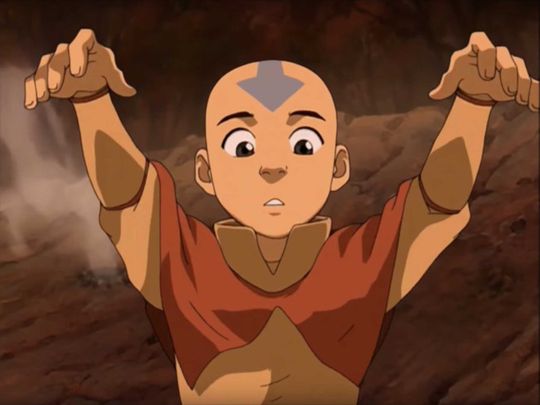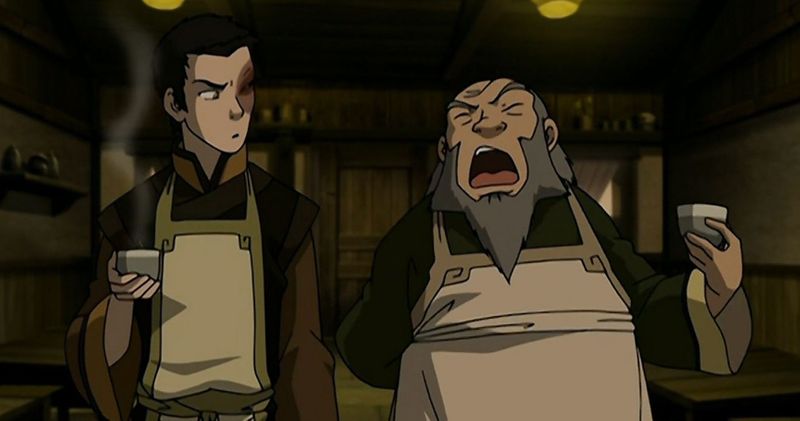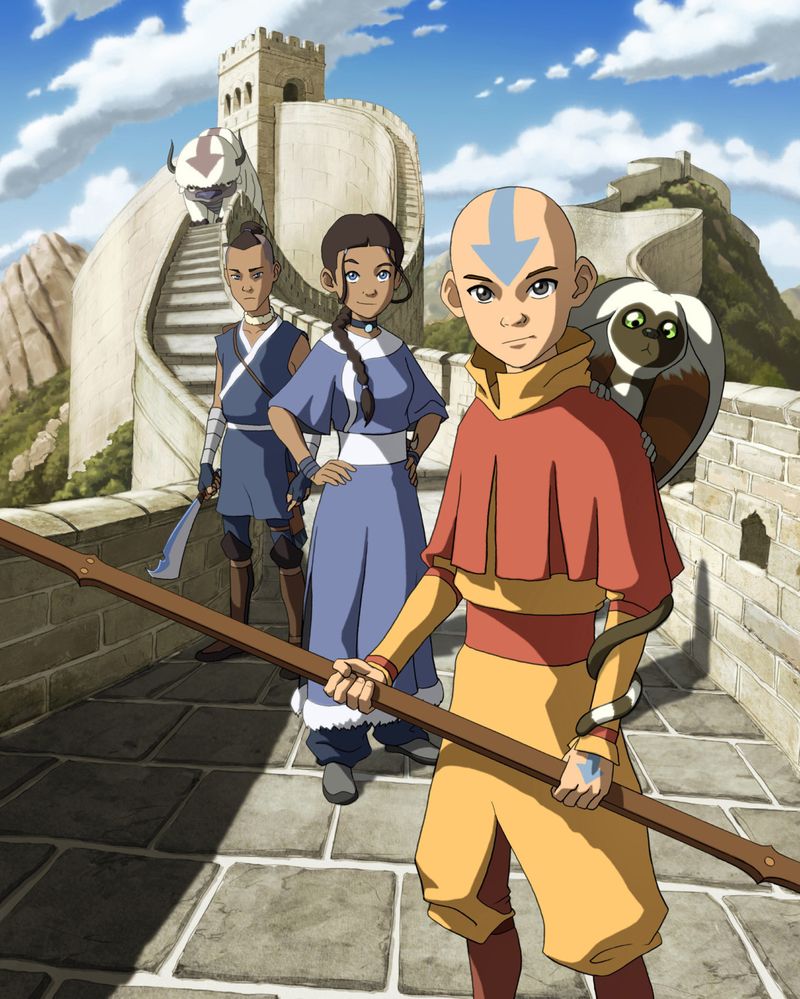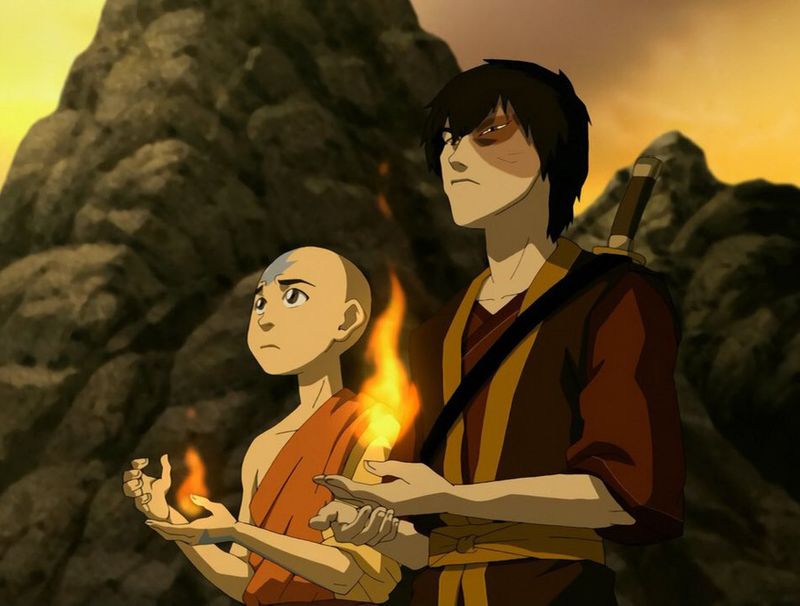
Sarah Rohani Drepaul, a 22-year-old in Queens, graduated from college in the spring and found herself stuck back home. She wanted to watch a TV show that would be a balm for the pandemic summer without wholly disconnecting her from current events. So she turned to ‘Avatar: The Last Airbender’, which aired on Nickelodeon from 2005 to 2008 and relaunched on Netflix in May.
“I remember specifically starting it because there was talk about it, but also I needed something that is lighter,” Drepaul says.
While seeing the spiralling news about the novel coronavirus and the protests for racial justice, she found that watching ‘Avatar’ became a way to digest those events. The show “didn’t feel like escapism,” she says — but in a good way. “It felt like a lens that I could better understand my society.”
For months, ‘Avatar’ has consistently appeared in Netflix’s top 10 most-watched shows, the company says. Forums dedicated to the show have been active since its initial run, and since the spring, fans new and old have taken to TikTok, Reddit and Twitter to discuss their favourite characters and moments. But its immense popularity isn’t just the result of a wave of nostalgia. Fans say its reflection in current events has been a grounding force in a tumultuous time.

‘Avatar’ is set in a fictional world of four nations: fire, water, earth and air. Certain people in each nation have the ability to manipulate the elements, a skill called bending. The title character is 12-year-old Aang, the sole surviving airbender after a fire nation-led genocide. He’s also the latest reincarnation of the ‘Avatar’ — a person with the ability to bend all four elements and the responsibility to keep the nations balanced to preserve peace. Aang finds a way to restore that balance, all the while the show tackles themes of war, teamwork, collective trauma and corrupt governments.
Tanvi Yenna, 24, a new fan from Ottumwa, Iowa, was struck by episodes set in Ba Sing Se, a city in the earth kingdom with strict wealth-based social stratification, and where officials deny that the 100-year war against the fire nation is still taking place.
“There’s very visceral connections to people being in denial of very concrete realities. Things like police brutality and racism, but also the global pandemic,” she says. “Even just the fear of talking about the war in Ba Sing Se reminded me of being gaslighted when you do wear a mask around” by people who don’t believe masks help the spread of the coronavirus, despite evidence to the contrary.
“In some ways, I’m surprised by how relevant the show still is to people, but in other ways, not at all,” one of the creators, Michael Dante DiMartino, writes in an email. “The major issues in the stories — genocide, totalitarianism, systemic injustice, abuse — sadly, these have been pervasive issues throughout history and continue to be. The show is a reflection of our world. But now, we happen to be living through a time in which all these problems have been exacerbated.”

Some fans are even making protest posters featuring a former Avatar, formidable earthbender Kyoshi, and her haunting advice to Aang at the end of the show: “Only justice can bring peace.”
That’s Jade Tyra’s favourite line. The 17-year-old from Hilo, Hawaii, is a new fan who graduated from high school in the spring — only to find her plans derailed by the coronavirus — and has watched the whole series three times since May. Tyra is involved in community activism efforts, and the show has been a great way for her to explain big issues to her younger siblings.
“This show has a really incredible perspective on the way that we do justice because it frames it in this easy-to-manage and easy-to-comprehend format, which is a children’s cartoon,” she says.
Co-creator Bryan Konietzko figured that the re-release of ‘Avatar: The Last Airbender’ on Netflix would resonate during the lockdown for that reason.
“The feedback we’ve gotten from parents over these many years is that this is a show they cannot only watch as a family, but also one that presents a solid set of ethics in an engaging way and helps them introduce difficult topics to their children,” he writes via email.
He adds, “The spirit of the show has always attracted a core group of fans who are compassionate toward their fellow humans and passionate about social issues.”
Some fans are especially taken with a storyline featuring Prince Zuko, who has been exiled from fire nation and tries to regain his honour by capturing the Avatar, but instead joins him in fighting his native land.

Sydney Rae Chin, 23, an intuitive sex educator in Philadelphia and longtime fan, says that Zuko’s arc is a model for mental health. Viewers watch Zuko process his traumas — the emotional and physical abuse from his father and subsequent banishment — while he transforms from enemy to ally. “Looking at someone who has been harmed and is doing that inner work ... it’s nice to have a media representation of that.”
My own friend Priya Dadlani — who co-created a collective for activism, art and publishing led by women of colour and queer/trans people of colour — watched the show for the first time in May and says Zuko’s defection to Team Avatar reminds her about community accountability.
“You’re seeing someone unlearn their history, sacrifice privilege, family and social standing to stand up for what’s right,” says the 25-year-old from Brooklyn. “I feel like that whole process is happening now.”
“I’m in awe and gratitude to all those courageous people out in the streets, making calls, speaking truth to power, and working to make this world a more just place,” says DiMartino, the co-creator, of the activism over the past couple months. “And if ‘ATLA’ had a tiny amount to do with that, I am humbled to say the least.”









